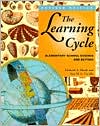Category Books
- Fiction Books & Literature
- Graphic Novels
- Horror
- Mystery & Crime
- Poetry
- Romance Books
- Science Fiction & Fantasy
- Thrillers
- Westerns
- Ages 0-2
- Ages 3-5
- Ages 6-8
- Ages 9-12
- Teens
- Children's Books
- African Americans
- Antiques & Collectibles
- Art, Architecture & Photography
- Bibles & Bible Studies
- Biography
- Business Books
- Christianity
- Computer Books & Technology Books
- Cookbooks, Food & Wine
- Crafts & Hobbies Books
- Education & Teaching
- Engineering
- Entertainment
- Foreign Languages
- Game Books
- Gay & Lesbian
- Health Books, Diet & Fitness Books
- History
- Home & Garden
- Humor Books
- Judaism & Judaica
- Law
- Medical Books
- New Age & Spirituality
- Nonfiction
- Parenting & Family
- Pets
- Philosophy
- Political Books & Current Events Books
- Psychology & Psychotherapy
- Reference
- Religion Books
- Science & Nature
- Self Improvement
- Sex & Relationships
- Social Sciences
- Sports & Adventure
- Study Guides & Test Prep
- Travel
- True Crime
- Weddings
- Women's Studies
The Learning Cycle: Elementary School Science and Beyond » (1st Edition)

Authors: Ann M. L. Cavallo, Edmund A. Marek, Marek (Adapted by), Cavallo
ISBN-13: 9780435071332, ISBN-10: 0435071335
Format: Paperback
Publisher: Heinemann
Date Published: April 1997
Edition: 1st Edition
Author Biography: Edmund A. Marek
A former classroom teacher, Ann Cavallo has been a science educator for more than sixteen years. She is currently an associate professor at the University of Oklahoma, where she teaches science education and directs educational programs in biomedical science. She has published many articles on science teaching and learning, and is active in the National Association for Research in Science Teaching and the National Science Teachers Association. She has earned several awards for her teaching and research.
Edmund Marek has been a science educator since 1970 and has taught at all levels from elementary through graduate school. He is currently a professor of science education and the director of the science education center at the University of Oklahoma and has received numerous awards for teaching and research. The author of more than sixty publications on science teaching, Marek is active in the National Science Teachers Association and the National Association for Research in Science Teaching.
Book Synopsis
To Edmund Marek and Ann Cavallo, the learning cycle is more than a classroom strategy; it is a philosophy of education--a model of instruction that can promote critical thinking and meaningful learning. It places students at the center of their learning experiences, encouraging them to engage in explorations, form new understandings, and relate those understandings to other concepts.
The book describes how the learning cycle, originally founded on Piagetian theory, elucidates several theories of learning and development, including Ausubel's theory of meaningful learning and Vygotsky's social constructivist theory. The learning cycle is advanced as a model for teaching not just science, but all subject areas, providing a basis for thematic and integrated instruction.
Perhaps the most important feature of the book is the usable learning cycles it presents. Designed for kindergarten through sixth grade, they cover the life, earth, and physical sciences. Additionally, learning cycles are used throughout the book to illustrate concepts, theories, and scientific processes. Interdisciplinary learning cycles and learning cycles for mathematics, language arts, and the fine arts are also included, along with sample learning cycles for middle school teaching.
The book itself is a learning cycle. It invites you to explore your own ideas about teaching science, to construct the relationships between the nature of science and the nature of the learner, and ultimately, to expand these ideas into practical classroom applications.
Table of Contents
| From the Authors | ||
| Acknowledgments | ||
| 1 | The Nature of Science and Science Teaching | 3 |
| 2 | The Goals of Science Education | 17 |
| 3 | The Nature of the Learner | 34 |
| 4 | The Theory Base of Elementary School Science | 69 |
| 5 | Developing Learning Cycles | 105 |
| 6 | Methods and Technologies Within the Learning Cycle | 128 |
| 7 | Measuring Students' Progress in a Learning Cycle Program | 141 |
| 8 | Learning Cycles for Elementary School Science | 152 |
| App. A | Learning Cycles for Pre-K and Kindergarten | 223 |
| App. B | Protocols for Formal Operational Tasks | 230 |
| Index | 241 |
Subjects
 Educational Theory, Research & History
Educational Theory, Research & History  Psychology of Education
Psychology of EducationEducation & Teaching
 Learning
Learning  Learning
LearningEducation & Teaching
 Teaching & Teacher Training
Teaching & Teacher Training  Teaching - Science & Technology
Teaching - Science & TechnologyNonfiction
 All Nonfiction
All Nonfiction  Education - General & Miscellaneous
Education - General & MiscellaneousScience & Nature
 Reference & Textbooks
Reference & Textbooks  Study & Teaching of Science
Study & Teaching of ScienceScience & Nature
 All Science & Nature
All Science & Nature  Science Reference
Science ReferenceNonfiction
 Science & Nature
Science & Nature  Reference & Textbooks
Reference & TextbooksNonfiction
 Science & Nature
Science & Nature  All Science & Nature
All Science & Nature
